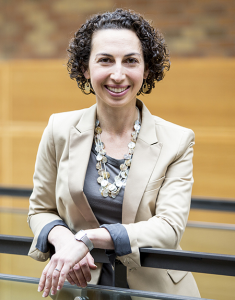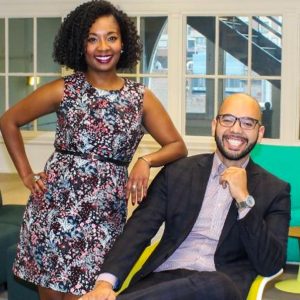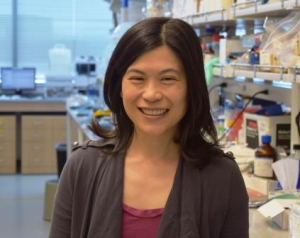Newsprint: Forbes 30 Under 30, White House awards, predicting sickness

Emily Fox
Presidential promise
Two professors received Presidential Early Career Awards: Emily Fox, associate professor of statistics and of computer science, and Catherine Karr, professor of pediatrics and of environmental and occupational health sciences. Fox was nominated by the National Science Foundation for her groundbreaking work in machine learning as well as her mentoring of women in computer science and statistics.
The U.S. Department of Health and Human Services nominated Karr, citing her community-engaged approach to research focusing on environmental contaminants and pediatric respiratory health.
WiFi Wizard
Jeeva Wireless, a company created by UW engineers, raised $1.2 million in its quest to create a better, more power-efficient way to generate WiFi transmissions. Passive Wi-Fi can produce WiFi transmissions that use 10,000 times less power than the conventional means. Now that’s powerful.

Jacob Allen (right)
The Forbes’ five
Two UW alums and two researchers landed on the Forbes “30 under 30” lists for best entrepreneurs and innovators. In the field of energy, Giles Eperon, research fellow in nanotechnology, was recognized for designing thin-film solar photovoltaic cells.
Shyam Gollakota, assistant professor in Computer Science & Engineering, was honored on Forbes’ All Star Alumni List for his new WiFi standard that cuts power consumption.
In enterprise technology, Forbes also recognized Mitchell Hashimoto, ’11, and Armon Dadgar, ’11, co-founders of San Francisco-based tech firm HashiCorp, and Jacob Allen, ’12, co-founder of pilotED Schools.
Passing on perfect
Tiffany Dufu, ’96, ’99, a national figure in the women’s leadership movement, recently published “Drop the Ball,” a memoir and guide to letting go of perfection and finding ways to focus on what you care about. As a UW student, Dufu served as a writing tutor at the Office of Minority Affairs and Diversity’s Instructional Center.
Seeking sickness
UW Tacoma spinoff KenSci, a machine-learning platform that predicts which patients will get sick, secured $8.5 million in funding in January. The venture, co-founded by UW computer science professor Ankur Teredesai, examines patient data to predict health risks and proactively identify who might develop serious diseases or face significant mediacl complications. Teredesai directs UW Tacoma’s Center for Data Science.

Suzie Pun
Watch out, cancer
A research team headed by Bioengineering Professor Suzie Pun won the National Cancer Institute’s Nanotech Startup Challenge to shorten the time it takes to develop a targeted drug delivery system for breast cancer. The proposal targets a specific population of of tumor-promoting cells present in most cancers.
CoMotion, the UW’s hub for innovation and spinoffs, connected Pun’s research team with ECF Biosolutions, an East Coast company, to develop the approach.
Women in tech
Sapna Cheryan, associate professor of psychology, has been spending the 2016-2017 year as a visiting fellow at the Stanford University Center for Advanced Study in the Behavioral Sciences. Her research focuses on stereotypes, identity and belonging. At Stanford, she is working to help technology companies create more welcoming cultures for women.
Making music
Patients with motor disabilities can now make music, thanks to a grant from the National Endowment for the Arts to the UW Center for Digital Arts and Experimental Media. The $80,000 project, done in collaboration with the Swedish Neuroscience Institute, will enable patients who have suffered a brainstem injury, spinal cord injury or have Amyotrophic Lateral Sclerosis to play special instruments using an electroencephalogram.